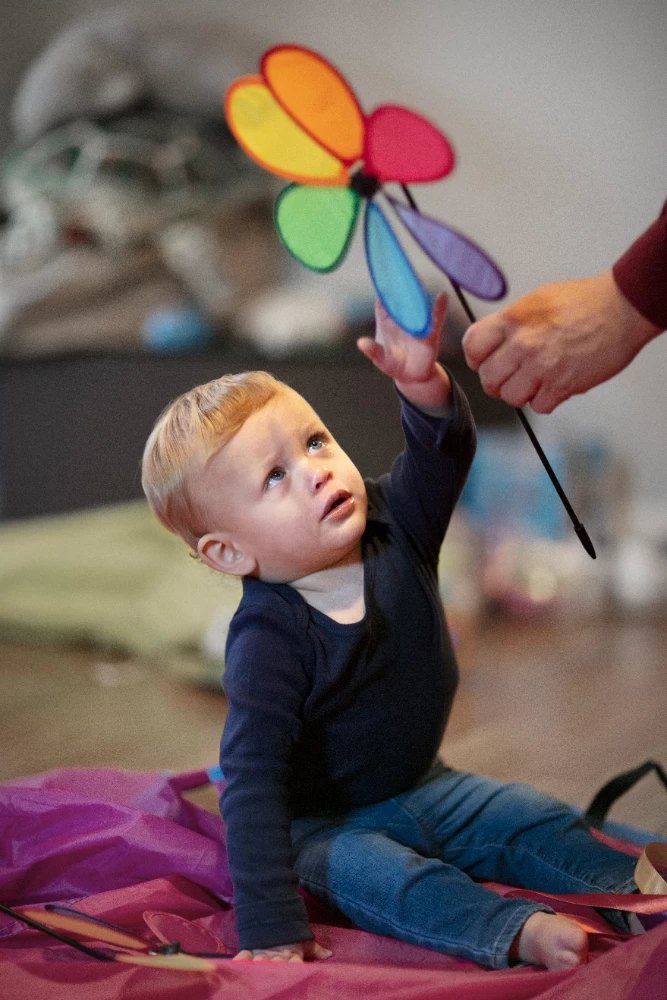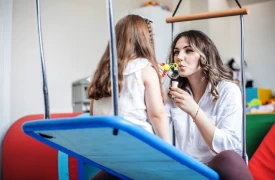
Why is Occupational Therapy Important?
- Why is Occupational Therapy Important?
- What is Occupational Therapy?
- Pediatric Occupational Therapy
- Why is it Important?
- When to Consult an Occupational Therapist?
What is Occupational Therapy?
Occupational therapy represents a person-centered health profession that aims to improve health and well-being by bringing together meaningful and goal-oriented activities, incorporating various therapy strategies.
Pediatric Occupational Therapy
Pediatric occupational therapy is a form of therapy that aims to help children become independent in their daily lives and assist them in realizing their potential. Pediatric occupational therapists are health professionals specialized in working with children and infants.
The goal of pediatric occupational therapy is to improve the child's physical, emotional, social, and cognitive skills so that they can lead their lives freely and happily. Therapists work to encourage, protect, and enhance the skills necessary for the child to be functional in daily activities in home, school, and family environments.
Pediatric occupational therapists work with both typically developing children and children with special needs, aiming for children to participate in their daily life activities, roles, and responsibilities with maximum independence.
During the therapy process, therapists assess the child from sensory, motor (fine and gross motor), cognitive, and psychosocial perspectives, create therapy programs using individualized and scientifically based strategies tailored to the child's needs.
Skills are supported through play and creative activities in the therapy process.

Why is it Important?
Every child has a unique potential. Pediatric occupational therapy removes barriers to this potential, allowing children to participate more strongly in both individual and social life.
Occupational therapy evaluates the child holistically.
- Daily living skills: Includes activities such as eating, sleeping, dressing, and using the toilet.
- Fine motor skills: Includes activities such as writing, using scissors, or picking up and dropping small objects.
- Gross motor skills: Includes physical activities that develop balance, coordination, and muscle strength.
- Sensory integration: Includes activities that help the child regulate and respond appropriately to sensory information from their environment.
- Social and emotional development: Includes activities that enhance a child's ability to communicate with others, problem-solve, and manage emotional reactions.
- Academic and play skills: Includes activities that support a child's cognitive and social abilities through learning and play. The child is evaluated as a whole. Areas of developmental problems or support that have been identified based on assessments are determined. These strong areas identified based on evaluations are used to continue the process with the active participation of the child. It is used to support the child's active participation in therapy. The child should enjoy the therapy process.
When to Consult an Occupational Therapist?
Consulting a pediatric occupational therapist is highly beneficial in cases where children experience developmental difficulties in the areas mentioned below or face problems in their daily lives without a developmental problem.
When the following situations are observed, it is very useful to consult a Pediatric Occupational Therapist.
- Social Communication and Interaction Differences: Differences in your child's interaction with peers and social communication.
- Attachment Issues: Situations where your bond with your child evolves from secure attachment to pathological attachment.
- Motor Skill Delays: Delays in motor skills, problems in fine and gross motor skills.
- Sensory Challenges: Challenges with sensory regulation, sensory sensitivities.
- Attention and Focus Problems: Attention deficit, focus difficulties.
- Behavioral Issues: Problems observed in behavior.
- Nutrition Problems: Eating habits or problems.
- Sensory Sensitivity: Discomfort with labels, sensitivity to different textures.
- Routine Formation Problems: Formation of routines or obsessive behaviors.
- Sensitivity to Smells: Discomfort with different smells.
- Writing Problems: Problems in writing skills.
- Personal Care Difficulties: Difficulties in personal care matters, such as bathing, toilet training, tooth brushing.
- In-Class Behaviors: Difficulties staying seated or in-class behaviors.
- Social Problems: Social interaction problems, excessive sociability or social shyness.
- Body Awareness: Lack of body awareness.
- Motor Skill Problems: Weakness in ball games, movement skills.
- Competition and Group Activities: Struggles in competition and group activities, failures and non-acceptance.
- Difficulties Making Friends: Difficulty in forming friendships.
- Daily Responsibilities: Constant need for support in daily life responsibilities.
- Sound Sensitivity: Discomfort with loud noises or speaking loudly.
- Vehicle Holding: Holding onto vehicles while moving.
- Movement Insecurity: Difficulties in descending stairs or moving areas.
- Need for Tight Spaces: Constant desire to squeeze into tight spaces.
- Collision and Clumsiness: Constantly bumping into things or clumsiness.
- Aggression Towards Friends: Pinching, hitting friends.
- Sleep Problems: Sleep patterns or problems.
- Play Skills: Weakness in playing, game creation and maintenance skills.

Erg. Sinem Altın DEMİRBAĞ AKKAŞ
Occupational Therapist & Physiotherapist





